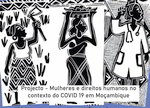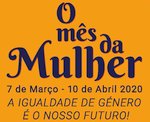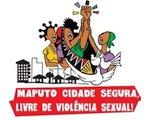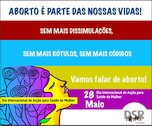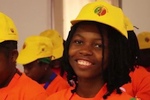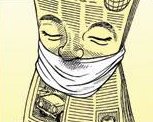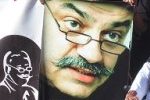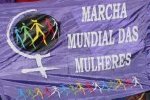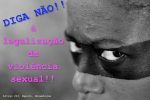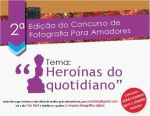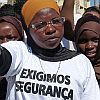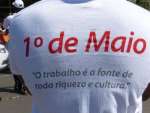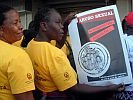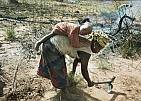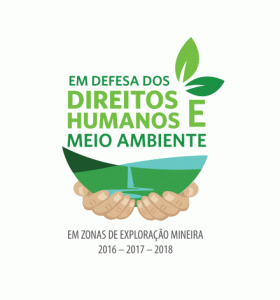
Campaign Manifesto
“UDHINDO:
In Defence of Human Rights and the Environment”
September 2017 to March 2018
We, the undersigned civil society organizations based in Moatize district and in Tete province, concerned about the rights of the girls, women and communities affected by the coal mining industry, are launching this campaign together.
In the local language, nyungwe, UDHINDO means rights. This is why the name was chosen, as it represents the focus of our work and our campaign.
The deterioration of the living conditions of populations affected by mining in Moatize district has intensified in recent years, in particular the following aspects: separated from their resources and subsistence activities (market sales, pottery etc.), the allocation of new farmland that is not fertile and sandy, resulting in falling subsistence agricultural production, more difficult access to water, among others.
In addition to these problems there is the pollution situation that affects not only the resettlement populations but all Moatize residents.
Moreover, the impact of the resettlement process, with the resulting loss of income generating livelihoods, granting compensation to men and not to families (except for widows) and the loss of social support networks has intensified gender inequalities in a society that is already profoundly marked by unequal power relations between women and men.
However, given that this campaign was planned to last seven months, we have chosen to focus on two of the most serious problems: pollution of the environment and rising domestic violence against women. So this campaign intends to disseminate and create conditions for changes to the environmental pollution problems caused by the mining companies’ actions and fight the domestic violence that violates the rights of women and girls.
1st problem – environmental pollution
Coal mining pollutes the water. In turn, this water will contaminate nearby rivers, affecting the health and livelihoods of communities. The fish caught in the rivers, an important component of people’s diet, have dark entrails. The same happens with the goats who drink the same water. This situation is most serious in Capanga, but also affects resettled communities and the entire district.
The dust and soot that appear when coal is being transported and following explosions also contribute to air pollution. Explosions in the opencast mines throw up enormous amounts of coal dust into the air that is visible to the naked eye. The same thing happens with the coal plant, as the measure taken to wet the coal does not eliminate most of the pollution. Maize flour that is spread out to dry in the open air, as has always been done, becomes unfit for consumption because it gets covered by a thick layer of coal dust. This same suspended dust lands on all surfaces and is inhaled by thousands of people every day.
It must be recalled that the principles in the Environment Law (Law 20/97, of 1 October) state that the person or entity that pollutes must be accountable, and must repair or compensate for the resulting damage.
It is clear to us: coal mining, as it has been done to date, is causing serious harm to the people living in Moatize district, in terms of both their livelihoods and their health and living conditions.
For this reason, we want the authorities in the relevant areas, at all levels, to recognize the high levels of pollution of soil, air and water caused by the action of mining companies, and to commit to applying the Environment Law. At the local level in particular, the District Administrator and the mayor, the Planning and Infrastructure services, the Economic Activities, Health, Gender, Children and Social Action services must activate the mechanisms associated with the Environment Law to stop and eliminate the problem, and fight hunger, malnutrition and the resulting health problems.
The leaders of affected communities, the religious leaders, women and men in the communities must be able to have their voices heard, guaranteeing that their problems and their needs are respected and addressed.
2nd problem – domestic violence against women and girls
Domestic violence is a problem affecting many women throughout the world. Some 35% of the world female population over 15 years of age has suffered physical or sexual violence at some time in their lives, according to a survey by the World Health Organization (WHO, 2013).
Mozambique is no exception to this situation; domestic violence affects a large number of women, causing disability or even death. Under the Law Against Domestic Violence, approved in 2009, domestic violence is any act against a woman that causes physical, sexual, psychological or economic damage, imposes restrictions or arbitrarily deprives them of freedoms in public and private life.
Domestic violence is different to other forms of violence, as the women who suffer do not experience isolated episodes, but are in a violent relationship. In other words, they often suffer various episodes of aggression over the years. In reality, domestic violence is a way for men to control women, to keep them docile and obedient, and is often justified as being “to teach them”.
Aggression can be followed by a period of regret, or at least calm, where the aggressor denies or minimizes the aggression and promises that he will not do it again. However, the violence is usually repeated, more frequently and intensely.
Communities in Moatize, already severely affected and broken owing to the establishment of mining industries and resettlement, are experiencing high rates of domestic violence. Women and girls, the main victims, who already face difficulties in the daily struggle for subsistence, must also live a life of violence, widespread ill-treatment and assaults on their dignity.
Domestic violence prevents women and children from enjoying to the full their citizenship rights, is a sign of serious violations of their rights and damages the development of communities. If we are to have strong development in the district and the municipality, we must guarantee the full participation of girls and women, threatened with exclusion by patriarchal structures.
We must remember that, among the resettle communities, the impossibility of reproducing the family’s daily livelihood work, because lands are not arable and they have no alternatives, means losing some of the economic autonomy that had been achieved in their home areas.
There are also indications that over 80% of births in Mualadzi and Cateme are by children under 15 years of age, representing not only a rise in adolescent pregnancies but also premature marriages.
For this reason, we want the authorities at all levels, but particularly in the district, to work to prevent and criminalize this form of violence. And so that community leaders, women and men, know the laws that guarantee equality of rights and protect women from domestic violence.
As regards prevention, we must guarantee that education for equality and against violence starts in schools. As regards criminalisation, we must fight to increase the number of denunciations. No one who practices violence must go unpunished.
Our campaign, UDHINDO, will only last for seven months but our actions must go beyond that. Within this timeframe we want to talk and discuss with the authorities at various levels, with government agents and with affected people to learn more about what the law says, to inform about the situation being lived in Moatize and to take the first steps to improve the situation.
We who are running this campaign want to give a voice to people who have never been able to be heard, so that they are heard beyond their communities, also at the country level, in order to counter tendencies to repress demonstrations by the affected populations.
We invite all citizens, men and women, to join with us so that we can make Mozambique, our land, a space where people are respected and live with dignity. Where children grow up knowing that they have a future ahead, a clean and healthy environment.
For sustainable development!
For the rights of everyone!
Against pollution of the environment!
Against domestic violence against women and girls!
Moatize, 12 September 2017.
Participants in the campaign:
For RAMBOG:
- Movimento de Educação para Todos
- Rede Africana Juvenil (RAJU)
- Associação Moçambicana Amantes da Paz (AMAP)
- Associação Uma Família (ASUFA)
- Associação Grupo Terapêutico
- Associação Ex-membros da PRM
- Associação Mulheres Unidas Camponesas
- Associação Moçambicana dos Desmobilizados de Guerra
- KUBECERA-PTRN
- KUPULUMUSSANA
- Tiassamale Atenda
- KULEMEKEZA MOYO
- Liberdade Progresso e Desenvolvimento (LIPRODE)
- Grémio Juvenil para Desenvolvimento Integral (GREJUDI)
- ANAMOATIZE
- ACAMO
- Associação das Mulheres Para Legais
- Associação de Defesa de Meio Ambiente (ADEMA)
- Comunidade Afectadas pela Mineração (CAPEMI)
- Associação de Deficientes Militar Moçambicano (ADEMIMO)
For UPCT:
- Associação de Camponeses de Kuthandizana (Nhangoma)
- Associação de Camponeses de Timalisse Njala (Nhangoma)
- Associação de Camponeses de Phadza Patsogolo (Cateme)
- Associação de Camponeses de Titukule Cateme (Cateme)
- Associação de Camponeses de Chivano (Benga)
Partners:
- Associação de Assistência e Apoio Jurídico às Comunidades (AAAJC)
- Fundação Apoio Amigo (FAA)
- Fórum Provincial das ONGs
- Liga dos Direitos Humanos, Tete
- WLSA Mozambique







 Information in English
Information in English